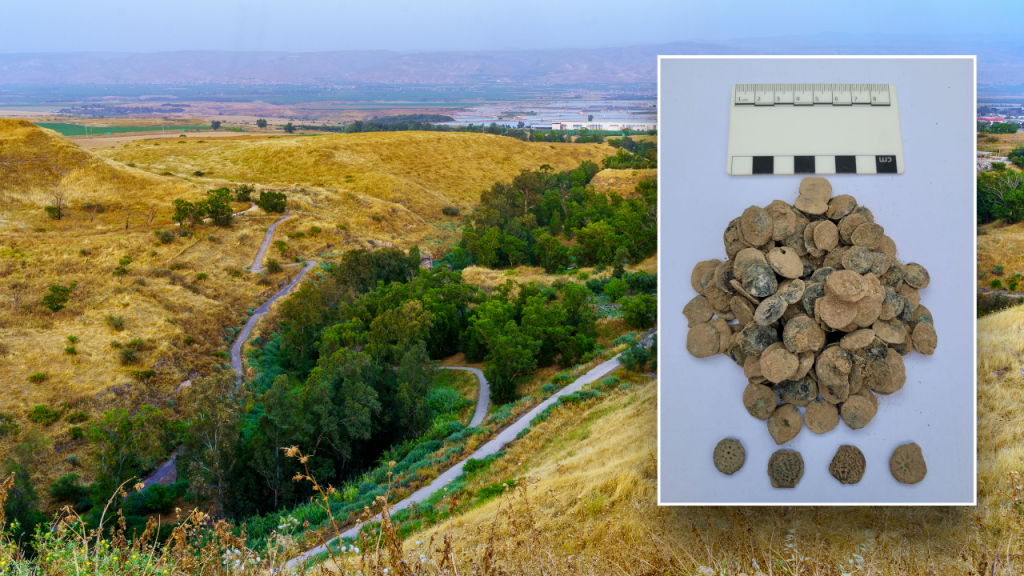Archaeologists and students recently uncovered a treasure trove consisting of 160 ancient coins during an excavation in Israel’s Jordan Valley. The discovery was made during Hanukkah and the artifacts are believed to date back to the Hellenistic period. The coins depict Alexander Jannaeus, a Jewish leader of the Hasmonean dynasty who ruled Judaea from 103 B.C. to 76 B.C. These coins, written in Aramaic and Greek, are considered to be the largest cache of their kind ever found in Israel. The excavation site is believed to be a road station along the route to an ancient fortress, where the coins were discovered in a room that likely served as a kitchen.
Very few caches of coins minted under Alexander Jannaeus have been found by archaeologists, making this discovery significant. The excavation site in the Jordan Valley is thought to be a previously unknown road station on the main road leading to the fortress of Sartaba, also known as Alexandrion. The site also included a mikveh, a ritual Jewish bath, and a pool or reservoir for holding water. The discovery was especially meaningful for the excavation team, given the ongoing Israel-Hamas war. The timing of the find during Hanukkah added special significance to the team during difficult times for the people of Israel.
The discovery of the ancient coins is just one of many ancient artifacts uncovered in Israel at the end of 2024. In addition to the coins, an unusual oil lamp with 1,700-year-old soot marks was found near the Mount of Olives in Jerusalem. A 12-year-old Israeli girl also discovered an ancient Egyptian amulet dating back roughly 3,500 years in December. These discoveries highlight the rich history and archaeological significance of Israel. Archaeologists in Israel are continuously uncovering new information about the ancient civilizations that inhabited the region, offering valuable insights into the past.
The artifacts discovered in the Jordan Valley shed light on the Hellenistic period and the reign of Alexander Jannaeus. The coins depicting Jannaeus reveal details about the ruler and his era, providing valuable historical information. The cache of coins found at the road station also raises questions about the significance of the site and its connection to the ancient fortress of Sartaba. The presence of a mikveh and water reservoir at the site suggests that it was an important stop for travelers and pilgrims in ancient times.
Overall, the discovery of the ancient coins in the Jordan Valley adds to the growing body of archaeological evidence in Israel. The find contributes to our understanding of the Hellenistic period and the Jewish Hasmonean dynasty. The artifacts offer a glimpse into the past, providing valuable insights into the ancient civilizations that once flourished in the region. As archaeologists continue to uncover new discoveries, the history of Israel and its rich cultural heritage will continue to be revealed. The find of the ancient coins is a testament to the ongoing efforts to preserve and study the history of this ancient land.


